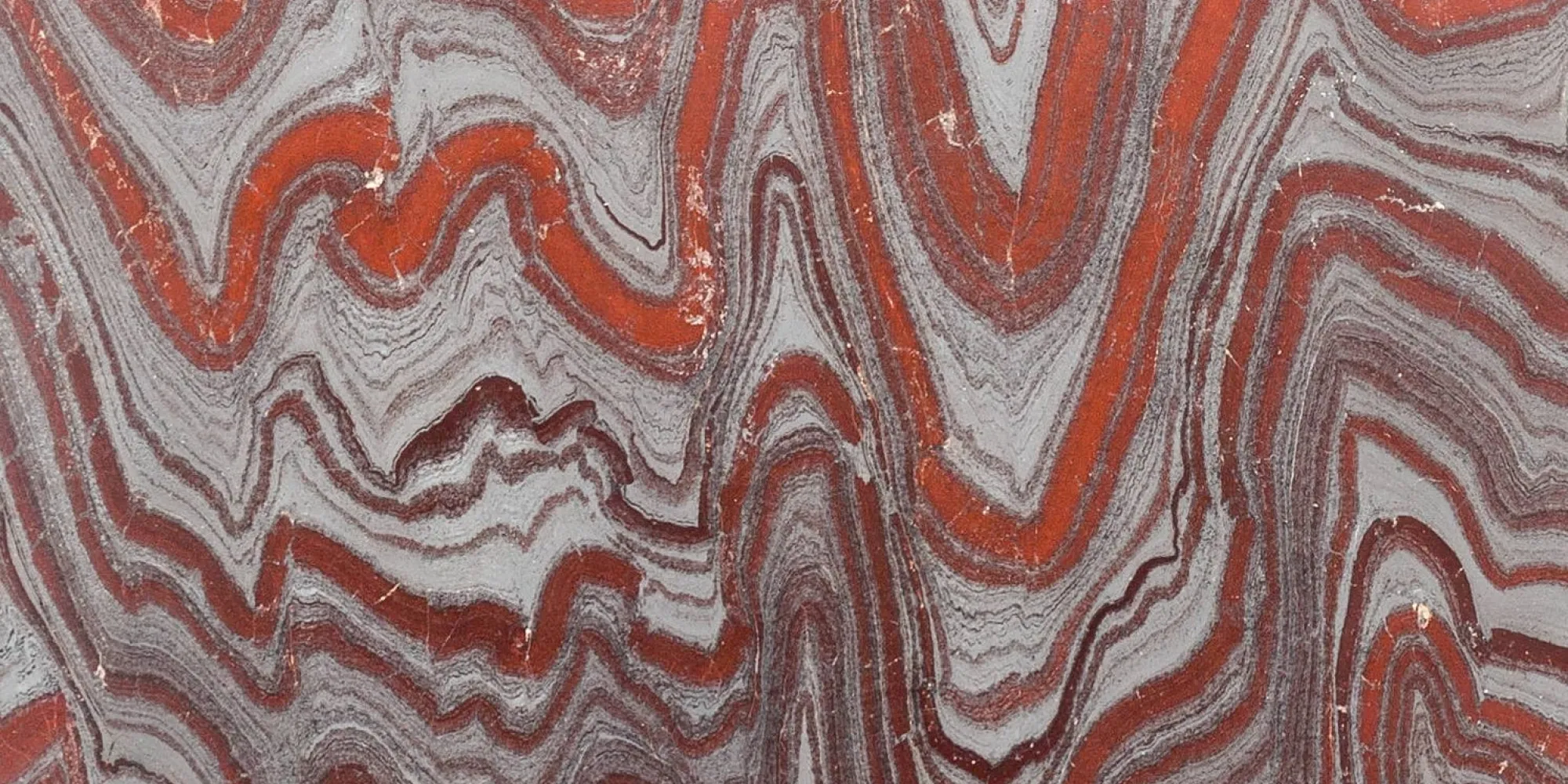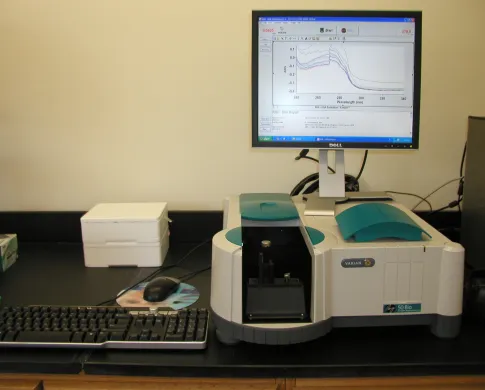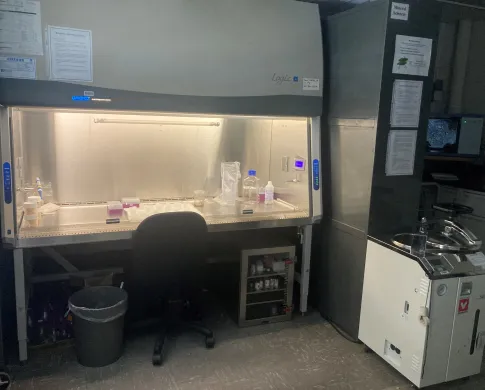Search

Geochemistry and Geobiology Laboratories
Most microorganisms in the environment are resistant to cultivation in the laboratory. The Geobiology lab is equipped for the study of these microorganisms at the DNA, RNA and protein level. It includes:
- a FastPrep-24 high-speed benchtop homogenizer for extraction of nucleic acids and proteins from difficult environmental and mineral samples
- two hybridization ovens for fluorescence in situ hybridization experiments
- a Beckman Coulter centrifuge
- a Mini-PROTEAN system for running protein gels
- a Varian Cary 50 UV-Vis spectrophotometer with a microcell for quantifying DNA, RNA and microbial biomass and making measurements of colorimetric liquid assays
Other equipment for geomicrobiology includes a -20°C freezer, refrigerators, vortexers and a microcentrifuge.
Isolating and growing microorganisms in the laboratory is key to understanding how they interact with and transform minerals and their chemical environment. The Geochemistry and Geobiology lab is equipped for the cultivation of microorganisms (fungi, bacteria, etc.) and the preparation of media within a sterile environment. It includes:
- a laminar flow Labconco Purifier Logic Class II Type A2 biosafety cabinet
- a Yamato SM-300 autoclave
- Aquatron A4000 water distillation system
- a Thermo-Barnstead Nanopure ultra-filtration water system
- a high-capacity Thermo MaxQ 600 shaking culture incubator.
The lab also contains equipment to digest rock and mineral samples in preparation for chemical analyses, including a chemical fumehood dedicated to hydrofluoric acid use, numerous hot plates, titration equipment, assorted Teflon and glassware. There is a large library of chemical compounds used in common geochemistry and geomicrobiology experiments.
General equipment for chemistry and geomicrobiology includes several chemical safety hoods, pH and conductivity meters, water baths, high-and low-temperature ovens, sonicator and high-precision balances.
Gallery

